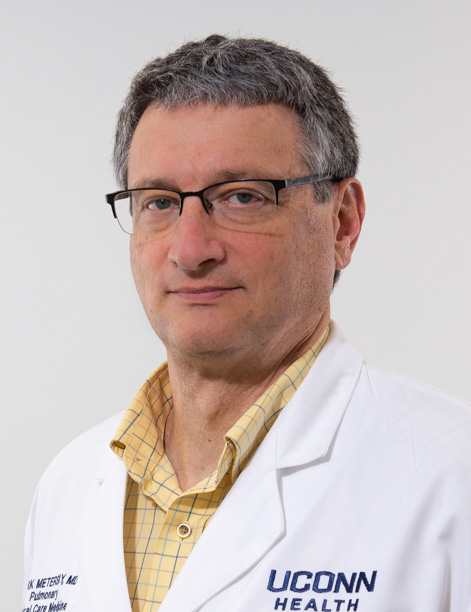Sleep Disorders Center
At UConn Health, we recognize that good sleep is essential to good health. UConn Health’s multidisciplinary Sleep Disorders Center offers expert care to evaluate and treat sleep disorders in adults and children.
The UConn Health Sleep Disorders Center is accredited by the American Academy of Sleep Medicine. Our patients receive a comprehensive sleep evaluation with state-of-the-art equipment and a personalized treatment plan. We work with many Durable Medical Equipment companies and various insurance companies, including Medicaid and Medicare and private insurance companies.
Common Sleep Disorders
We have experience treating all common sleep disorders, including:
- Sleep Apnea – a disruption of breathing during sleep
- Insomnia – difficulty falling or staying asleep
- Hypersomnia – excessive daytime sleepiness
- Narcolepsy – sleep attacks that can occur at any time
- Shift Work Disorder
- Parasomnias such as nightmare disorder, sleepwalking, and acting out during dreams
- Sleep Disorders in Children
Sleep Studies
Polysomnograms (nPSG)
A nocturnal sleep study, or polysomnogram, is a recording that measures various physiologic parameters used to identify sleep stages and possible sleep disorders. The activities recorded during sleep include brain waves (EEG), eye movements, muscle activity (EMG), heart rate, and snoring. The application of small electrodes and sensors are used to record this information into a computer for later analysis. Generally, patients arrive approximately 2 hours before their “usual” bedtime to prepare for their study. Testing usually lasts from 8 to 10 hours.
Multiple Sleep Latency Test (MSLT)
Patients may undergo an additional test called an MSLT. This test is generally performed in the morning after a full night polysomnogram. This means that patients will need to remain at the center for most of the next day. This test consists of a series of brief naps at 2-hour intervals. The MSLT is designed to evaluate the degree of daytime sleepiness and fatigue in subjects referred to the center.
Titration Studies (CPAP/Bi-Level)
Nasal continuous positive airway pressure (nCPAP) is the most commonly utilized treatment for obstructive sleep apnea. A standard CPAP unit delivers constant airflow during inspiration and expiration through a small nasal mask. Some patients may not tolerate standard CPAP and may benefit from a bi-level sleep study. Bi-level units often improve compliance because of the reduced pressure used during expiration.
Our Team





Patient Resources
Do you suspect you might have a sleep disorder? How sleepy are you? Take the test. And track your sleep with this two-week sleep diary.
Visit these sites for more information about sleep disorders: